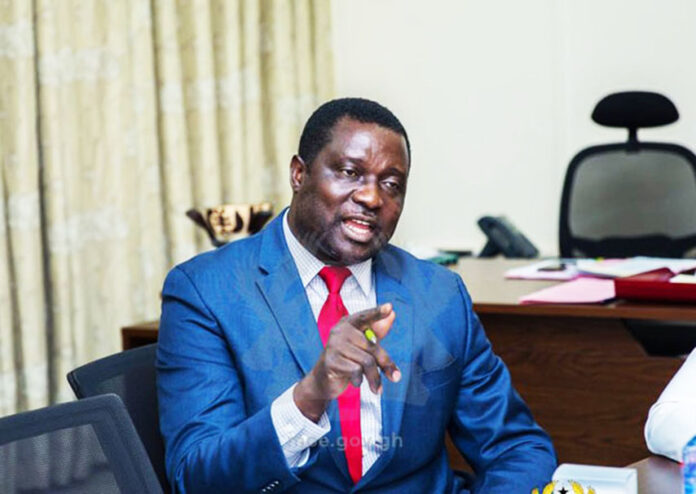The Minister for Education, Dr. Yaw Osei Adutwum, has revealed that the country will eliminate poverty through education.
This, he said, is the reason why the education system has put in place curriculums, instructions and assessments towards equipping the African Child to participate in the 4th Industrial revolution.
The minister said this in a media interview yesterday, during the 4th African Curriculum Association (ACA) Conference in Kenya.
The conference is being hosted by the Ministry of Education, in collaboration with Kenya Institute of Curriculum Development, from Monday 24th to 27th July 2023 under the theme: “Learning for Sustainable Features Connections between Curriculum, Cognition and Context”.
The Minister, who doubles as the patron of ACA, stated that to be able to achieve this, it is important for developing countries not to mismatch between education and national transformation because that alignment is critical.
He believes that once it is aligned, it serves as the useful purpose of putting away poverty.
Ghana has implemented a number of reforms, Mr. Adutwum said, but the main goal was to establish an education system that would assist the country transform the economic fortunes.
He went on to say that engineering education in Ghana has been improved, and schools with a concentration on it have been created for students in junior high schools through high schools.
Through this, the minister believes will enable Africa participate in the 4th Industrial revolution which is Artificial Intelligence.
“…we are talking about Artificial Intelligence, the development of drones under command of human being flying around the world and all the big things that are happening in Africa must participate in this fourth Industrial revolution”, he said.
The patron of ACA stated that, “The first industrial revolution, the advent of steam engine, then electricity was the second industrial revolution.
“The third industrial revolution was about computers and Africa did not play a central role in that now we are in the fourth industrial revolution and we have to partake in it”.
He continued by saying that it is crucial to boost literacy since doing so will help end learning poverty and allow kids to fully engage in the educational system and catch up with the rest of the world.
From his experience as a teacher and school leader in the United State, Dr. Adutwum affirmed that an African child is the most brightest and talented in the world and that they have all it takes to become a success story but “we have to create that ecosystem, which allows the African child to blossom and that is a means to an end”.
In addition, he urged teachers to stop considering the silent kids to be respectful and desist from discouraging those who ask a lot of questions and suggest that lessons be taught differently.
“The child who does not ask questions is deemed the most respectful. The child who suggests that the teacher teaches things differently invariably doesn’t become the favorite all that we are saying is that we have done well, we have made some strive as Africans, but we can do more in empowering the African child. For an African Child in a respectful African way to be able to express their opinions in the classroom to do more than what the teacher has told him or her”, he noted.
He concluded by saying that the classroom environment should be a place of innovation which will help the African child to develop growth mindset.
The event brought together experts in the education field, civil society, development partners and research institutions as well as representatives of private and corporate sectors from Africa and beyond to share experiences and good practices on the theme.
There conference also reflects on the changes that are taking place in the world in and outside the education institution.
It will also focus on the need for participants to understand the impact of the mismatch between curriculum and its related learning aspect on the quality of education and be able to explore the potential technology and innovations to enhance curriculum development, implementation, teacher education, assessment and evaluation.
Quality education is at the centre of the 2030 Agenda for Sustainable Development Goals that requires education practitioners to meet, dialogue and come out with strategies to mitigate these challenges in a holistic way.
The discussions are hoped to make recommendations on how Africa can make progress towards holistic hybrid modes of education.










